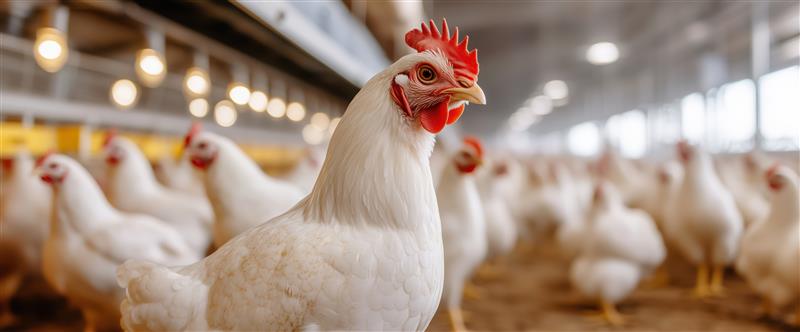Orlando’s Culinary Scene, National Bird Flu Concerns, and Regional Economic Trends 📈 Monday Market Update #MMU | February 17, 2025

By Amy Calandrino, Beyond Commercial
This week, we’re hitting three key stories impacting commercial real estate (CRE), small businesses, and the broader economy: Orlando’s recognition as a foodie destination, national concerns over avian flu, and a deep dive into the latest regional employment trends from the Bureau of Labor Statistics (BLS).
Understanding these trends can help investors, business owners, and property managers make informed decisions in an evolving marketplace. Let’s explore!
🍽 Neighborhood Spotlight: Orlando’s Foodie Scene Gets National Recognition
Orlando’s culinary scene continues to thrive, with Filipino restaurant Kaya, located in Mills 50, earning the #10 spot on Yelp’s “Top 100 Places to Eat in the U.S. 2025.”
📍 Where? Kaya – 601 N. Thornton Ave, Orlando, FL (Mills 50)
🏆 Ranking: #10 in the U.S.
🍽 Cuisine: Filipino-inspired dishes with a modern touch
Why This Matters for CRE and Small Business Growth
✅ Boosts Local Food Scene: Mills 50 is already one of Orlando’s trendiest dining districts, but this national spotlight will drive more foot traffic and attract more restaurant openings and investment opportunities.
✅ Higher Property Values: Increased restaurant popularity often leads to higher demand for retail spaces, leading to potential rent increases and property value appreciation in nearby commercial corridors.
✅ Tourism & Economic Impact: Orlando’s recognition as a foodie destination (beyond its theme parks) diversifies the local economy and strengthens its hospitality and retail markets.
📖 Read more: ClickOrlando – Yelp’s Top 100 List
🐔 National News: Bird Flu Outbreak and Its Economic Impact
The U.S. is facing a new wave of highly pathogenic avian influenza (HPAI), commonly known as bird flu. While this poses little direct threat to humans, it has major implications for the poultry industry, egg prices, and backyard flock owners.
Key Stats & Market Impact
🔹 1,550+ commercial and backyard flocks have been infected since 2023.
🔹 160+ new cases reported in the past 30 days.
🔹 Egg prices hit a national average of $4.15 per dozen, up 30% year-over-year due to shortages.
🔹 Poultry & egg producers are facing major losses, impacting restaurants, grocery stores, and consumers.
🔹 More people are raising backyard chickens—but experts warn of biosecurity risks, as the virus spreads rapidly.
What This Means for Businesses & CRE
📈 Higher food costs for restaurants & hospitality businesses
📦 Potential supply chain disruptions for food-service distributors
🏢 Industrial real estate demand may rise as companies invest in localized food production & biosecure poultry facilities
📖 Read more: Washington Post – Bird Flu & Poultry Industry
📊 Regional Economic Trends: Orlando’s Workforce and Employment Growth
Orlando’s job market is booming, but understanding how industries are shifting is crucial for making smart investment and leasing decisions.
📈 Employment Growth & Market Trends
🔹 Total nonfarm employment: 1,392,000 jobs (up 2.3% YoY)
🔹 Leisure & hospitality industry: +6.1% YoY (97,200 new jobs!)
🔹 Construction industry: +2.8%, adding 4,300 jobs
🔹 Professional & business services: +3.2%
🔹 Information sector: Down 1.5%, losing 1,500 jobs
🔹 Unemployment rate: 3.4% (below national avg. of 3.8%)
Wage Trends & Industry Insights
💰 Average hourly wage in Orlando: $27.87 (compared to the U.S. avg. of $31.48)
🔹 High-earning sectors:
- Management: $63.02/hr
- Computer & Mathematical: $48.27/hr
- Legal: $47.86/hr
What This Means for Commercial Real Estate
🏢 More demand for office space as business services & professional industries grow.
🏨 Hospitality & retail spaces thrive with major job gains in tourism & entertainment.
🏗 Construction growth indicates more developments in mixed-use, industrial, and residential projects.
📖 Read the full BLS Orlando report: BLS Orlando Economic Summary
💡 What This Means for Investors & Business Owners
✅ Orlando’s culinary scene is growing → Increased demand for restaurant spaces, retail storefronts, and hospitality investments.
✅ Bird flu impacts food prices → Restaurants, grocers, and logistics companies may need to rethink supply chain strategies.
✅ Orlando’s job market remains strong → Commercial real estate demand rises, particularly in hospitality, office, and industrial sectors.
💬 Looking for CRE insights? Whether you’re a property owner, investor, or business leader, understanding these trends is key to making strategic decisions.
📩 Let’s discuss how you can capitalize on these market shifts. Reach out today at BeyondCommercial.com 🚀
